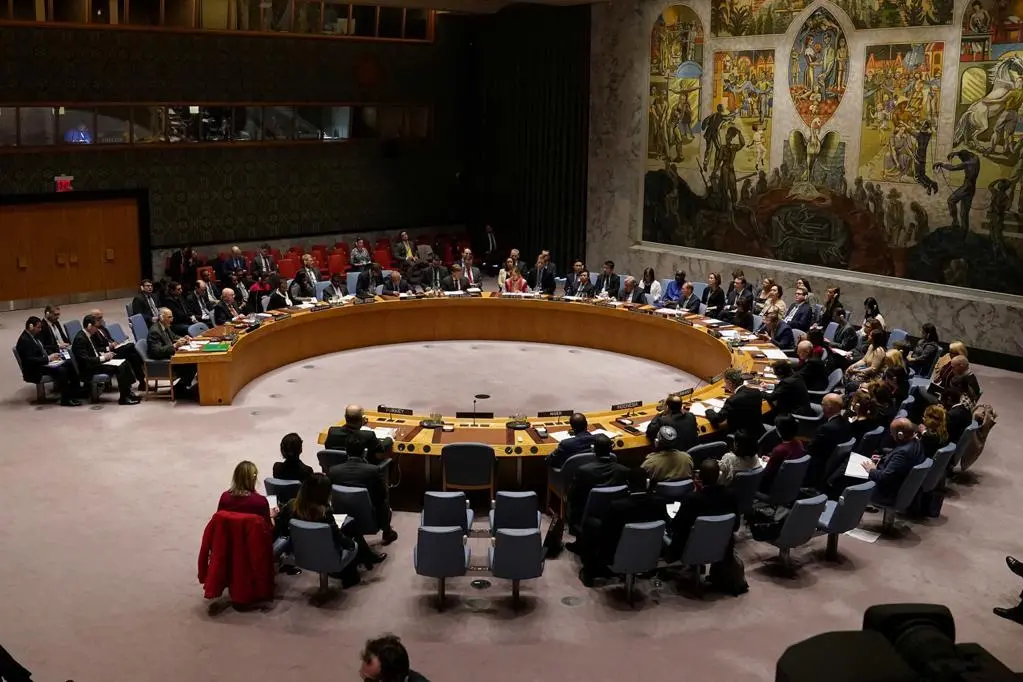PHOTO
The latest two-week session of the Intergovernmental Panel on Climate Change concludes next Friday. Under the auspices of the UN it is preparing what is likely to be the single biggest agenda-setting climate science report of the year.
The IPCC, a collection of hundreds of the world’s top scientists, issues three huge reports on climate change every five-to-seven years. The latest, which will be published at the end of the month, will be a no-holds-barred update on how climate change is already affecting humans and the planet, what to expect in the future, and the risks and benefits of adapting to a warmer world.
The IPCC meeting is not the only one in recent days to flag red lights related to the climate crisis. The Munich Security Summit, which began on Friday and continues until Sunday, has released research suggesting that climate change is viewed as a bigger threat than war by a majority of people living in some of the world’s top economies. The poll lists concerns over global warming, the destruction of habitats and extreme weather as the top three risks named by 12,000 people surveyed globally.
Add to this the recent meeting in Indonesia of G20 finance ministers, during which the chair of the session, Sri Mulyani Indrawati, stated that global warming poses a significantly greater threat than the pandemic. She added that G20 members should proactively address the issue, which is a key theme of this year’s Indonesian presidency of the group of major world powers.
While the full details of the IPCC report are still being finalized, the organization is already making clear that the stakes in the fight against global warming are higher than ever. Species extinction, ecosystem collapse, mosquito-borne disease, deadly heat, water shortages and reduced crop yields are already measurably worse as a result of rising temperatures.
In the past year alone, the world has seen an unprecedented cascade of floods, heatwaves and wildfires. Therefore this is not just a case of yet more scientific projections about the future, it is about extreme events and slow-onset disasters that people are already experiencing, such as the massive flooding in Germany last year that killed scores of people and caused billions of dollars of damage.
The report will underscore the urgent need for adaptation and preparation for devastating consequences that can no longer be avoided. In some cases this means that adapting to extremely hot days, flash flooding and storm surges has become a matter of life and death.
The imminent UN-backed climate change report will have a crucial effect on the international agenda.
Andrew Hammond
Given these circumstances, in the coming months the sense of pessimism might grow about the future of global efforts to combat climate change. Yet, while the scale of the challenge remains huge, last year’s Glasgow pact at COP26 offered hope that a critical mass of countries can ratchet up their cuts in emissions to try to meet the targets agreed in Paris in 2015.
Rather than viewing Paris or Glasgow as the end of the process, however, we need to be aware that they are only the beginning of a much longer journey that governments and legislators must now make in the 2020s, with even more ambition required.
The road map for moving forward is already clear. Firstly, the implementation of the Paris deal will be most effective through the introduction of national laws, where politically feasible. The country “commitments” put forward in 2015 and 2021 will be most credible, and durable beyond the next set of national elections, if they are backed up by national legislation wherever possible.
Legislation, unlike regulation, is difficult to roll back. This is especially true when it is supported, as it is in many countries, by well-informed, cross-party lawmakers from across the political spectrum who can put in place a credible set of policies and measures to ensure effective implementation, and hold governments to account, so that Paris delivers.
While the pledges made so far might not be enough as yet, the treaty has, crucially, put in place the domestic legal frameworks that are vital building blocks for measuring, reporting, verifying and managing greenhouse-gas emissions. Specifically, countries are required under the agreement to openly and clearly report on emissions and their progress in reaching the goals set in the national climate plans they have submitted to the UN. States must also update these regularly to highlight the measures being employed to implement the goals.
In the future, the ambition must be that these frameworks are replicated in even more countries and progressively ratcheted up. There are clear signs of this happening already in numerous states, from Asia-Pacific to the Americas, as countries seek to toughen their response to global warming.
Going forward, all of this underlines why legislators, and not just governments, must be at the center of international negotiations and policy processes on climate change along with other sustainability issues, including the 2030 development goals.
Post-Glasgow, lawmakers can now help to co-create, and implement, what could be a foundation of global sustainable development for billions of people around the world, starting with implementation of the Paris accords.
- Andrew Hammond is an associate at LSE IDEAS at the London School of Economics
Copyright: Arab News © 2022 All rights reserved. Provided by SyndiGate Media Inc. (Syndigate.info).





















